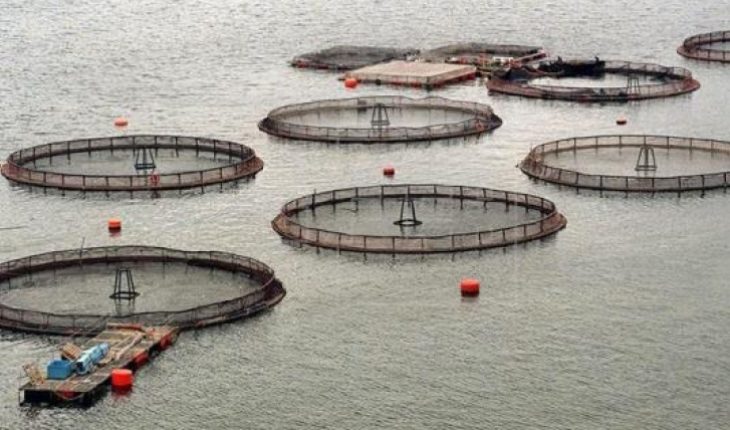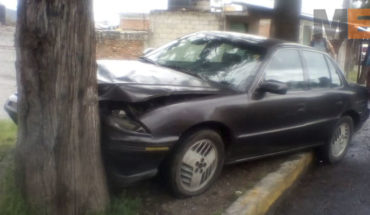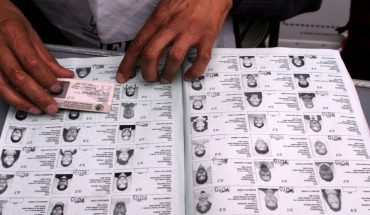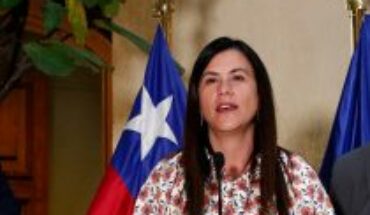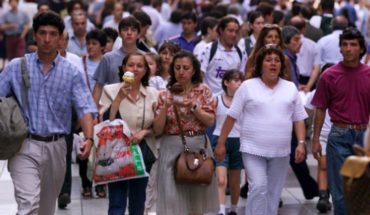The indigenous communities against a real resistance to the deregulated and predatory industry ecosystems. Worldviews and relationships with the territory are living in a way unknown to us (including urban environmentalists), clash strongly with the implacable and destructive corporate management. And colliding there are ways of conceiving space and, in general, life.
While for some space −o If the territory you want to or the naturaleza− is irrational exploitation material, for others is life, history, development, relationship, community.
The game is complex, because the immense power of the nihilistic machine that is our culture has no apparently being arrested by communities to historical mode and have systematically been weakened, harassed, assaulted, decimated. Salmon farming is an expression more −pero not cualquiera− of this story.
She is a clear example of the folly of modern times, conceiving it, is absolutely indifferent to the destruction that causes and we look as if it were a television show more. As salmon farming, setting up today in the southernmost places in the continent, has at least two fundamental issues.
The first of these has to do with that foolishness: following the ecological disaster that leaves in the tenth region, part, ever mindful, let havoc to Magallanes.
The second has to do with communities indigenous to the South of the continent, Yagan, kaweskar, tehuelches.
Progress had already created there horror. The selknam, today tourist reasons in the area, were victims of a genocide that the State did not want to recognize. Lately has begun to talk of extermination, while they are not extinct: this is nothing but a strategy that seeks to determine that, having been missing Indians, then there are no territories to recognize them as their own. And hence the cage with salmon.
In conversation with David Alday, leader of the yaghan people of Puerto Williams, and Leticia Caro Kloger, leader of the kawésqar family groups community nomads of the sea, have been able to see part of this conflict from the perspective of indigenous peoples.
The problems are several, because, on the one hand, it is indeed an area rich in water, vegetation, fauna, that any non-diseased culture would tend to care for above all things.
On the other hand, as says Leticia Caro Kloger, salmon farming is also a social and cultural problem that directly affects life forms, to places that constitute the space and territorial architecture of peoples, the relations of those who They inhabit those places, etc.
The kawésqar have shown how essential places for the practice of navigation, exercise that is not only a common practice, but practice that defines them, which makes them to be what they are, are disappearing fish, birds, transform into places outside. This destroys routes, geographies, the spatiality of the territory.
Furthermore, on Isla Navarino, where Puerto Williams, have been already marked places where the salmon farms will be installed. This is despite a series of titles that the city holds and that would be enough to halt–and don’t even think instalar− the salmon farms.
Puerto Williams has been declared reserve of the biosphere, indigenous development, area attractions, with the planet’s cleanest fresh water and place in their lands, in the Villa Ukika, where is located separately from the city the yaghan people inhabits the grandmother Cristina Calderón, living human treasure, as it is the last person in the world who speak the yaghan language.
These titles are, with everything, the media or insterticios by which indigenous peoples can play his cards. However, the State is guarantor of the companies, these offer conventions, both granted land, away, looking for support below.
Everything seems as if the Latin American State −el third world in general− was the place where modernity must twist itself to operate: institutes a series of tools for the development of human rights, respect and titles to the biodiversity, climate, pressed by the same modernity that wants to achieve, but at the same time, creates bodies of administration and management, corrupt and legal, which those securities and those tools of modern humanist hamper the advancement of the industry , whose mode of operation and conceiving things is completely contrary to the “ideals” of modernity on which it is born, grows and is conceived.
Chile seems to not respect international treaties such as the Convention for the protection of the flora, fauna and the scenic beauties of America or Agenda 21. Moreover, the yagan in Puerto Williams territory is ADI (Area of indigenous development) and this implies, at least, according to article 26 ° of the law No. 19.253, adopted in October 1995, ancient spaces and care for ecological homogeneity.
David Alday was skeptical before the relationship between the State and the salmon company. But the fight is equal. The yaghan people gives a resounding ‘no’ to the salmon farms. Support of the Argentine people yagan, people in Punta Arenas, there are strong links with communities kawésqar for the defense of the sea.
Leticia Caro Kloger tells us that salmon farming has been present in the kawésqar territory for more than 10 years, but that it is in recent years that activity has increased and with it the damage.
For the relocation of salmon farms in the region, there is a call open to indigenous consultation. He is consulted only to some communities that were formed at that time and worked at closed doors with them. And the management of the State and the companies certainly helped individuals from those communities. I.e. industry and systematic deterioration that exercises, are based on illegality.
The plan of reclassification of the Kawésqar Park by the State, does not consider at all the fundamental places of the village and seeks nothing else that leave available places for farmed salmon, crop that we have not said it, enter antibiotics, toxins, all of them causing drastic changes in the ecosystem, polluting the water, creating systems of defenses in organisms which degenerate in the death of others.
Salmon −peces carnivoros− leaks also alters greatly the aquatic life, the relationship of organisms and massive deaths conclude with the abandonment of tons fish dead at sea, generating pollution, destruction, death.
The industry should seek cages with special filter systems to prevent the passage of toxic droppings that produce salmon. But in Chile −garantia economico− progress of deregulation does not to do so. No company is required to that and most likely the Norwegian Kings that we just visit come with very good eyes all this.
Communities kawésqar, in defence of the sea, do not want to talk to the salmon producers. Part of these, there are no more than superfluous offers −convenios− without any destination. The State was also elusive, guarantor, we said, companies.
There is a law, the Lafquenche law, which creates a small space to allow you to resist, although we know that State managers and companies are experts in breaking humanity itself that create. But just as in Puerto Williams, the fight must be bringing it forward. A resounding “no” also.
This has led them to formalize its circuits, create navigational charts and thus indicate the State impossible places for the salmon farms.
This also implies a risk: the creation of these letters and the knowledge of these by the State and companies can end up in that other exploitation letting havoc, mass tourism. Maybe in a few years we have great spiritual tourism industry installed in the kawésqar territory forbidden places.
Fight against the industry can mean, well, more industry. But it may not be but that fight: indigenous peoples are not separated from their thought, their culture, their habits; they know that if they lose their lands, seas, circuits, they lose themselves, their traditions, their worldviews, their economies. They know that there is something different to this system, because they live it, they do not constitute it. And more aware than any urban shamanism, also know that is the way of the settler who must fight: with its laws, with their tools, with their arguments.
Never non-Indians will understand that there are other ways of thinking, feeling, living territories, spaces; never will happen even there energies (spirits) through which the sea, Earth, heaven are presented with an infinitely deeper sensitivity, to the point that is not by any ethical or moral duty defending sea, land, or sky, but simply because through their lives, their stories, their circuits, its traditions have internalized the importance of caring, respect, enjoy and live the place is inhabited. Thing that the gross modern rationality is far from understood.
translated from Spanish: Salmon farming and indigenous peoples – El Mostrador
April 20, 2019 |
